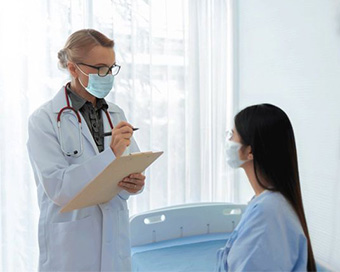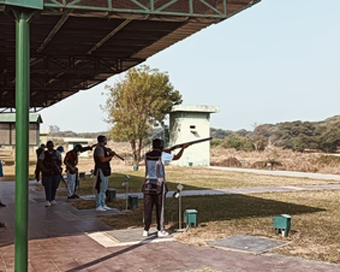Gallery
 PM Modi visit USA
PM Modi visit USA Only the mirror in my washroom and phone gallery see the crazy me : Sara Khan
Only the mirror in my washroom and phone gallery see the crazy me : Sara Khan Karnataka rain fury: Photos of flooded streets, uprooted trees
Karnataka rain fury: Photos of flooded streets, uprooted trees Cannes 2022: Deepika Padukone stuns at the French Riviera in Sabyasachi outfit
Cannes 2022: Deepika Padukone stuns at the French Riviera in Sabyasachi outfit Ranbir Kapoor And Alia Bhatt's Wedding Pics - Sealed With A Kiss
Ranbir Kapoor And Alia Bhatt's Wedding Pics - Sealed With A Kiss Oscars 2022: Every Academy Award Winner
Oscars 2022: Every Academy Award Winner Shane Warne (1969-2022): Australian cricket legend's life in pictures
Shane Warne (1969-2022): Australian cricket legend's life in pictures Photos: What Russia's invasion of Ukraine looks like on the ground
Photos: What Russia's invasion of Ukraine looks like on the ground Lata Mangeshkar (1929-2022): A pictorial tribute to the 'Nightingale of India'
Lata Mangeshkar (1929-2022): A pictorial tribute to the 'Nightingale of India' PM Modi unveils 216-feet tall Statue of Equality in Hyderabad (PHOTOS)
PM Modi unveils 216-feet tall Statue of Equality in Hyderabad (PHOTOS)India Open Competition in Shotgun, organised by the National Rifle Association of India (N
- Hockey India names Amir Ali-led 20-man team for Junior Asia Cup
- Harmanpreet Singh named FIH Player of the Year, PR Sreejesh gets best goalkeeper award
- World Boxing medallist Gaurav Bidhuri to flag off 'Delhi Against Drugs' movement on Nov 17
- U23 World Wrestling Championship: Chirag Chikkara wins gold as India end campaign with nine medals
- FIFA president Infantino confirms at least 9 African teams for the 2026 World Cup
COVID-19 Pandemic: Tips for patients while visiting a hospital Last Updated : 07 Oct 2020 07:06:33 AM IST 
File Photo The COVID-19 pandemic continues to grip India, however the lockdown restrictions have been gradually eased up. In the past few months, patients chose to delay non-critical and elective surgeries due to the fear of infection, leaving plenty of lives in peril.
As healthcare front liners continue to battle the pandemic, hospitals are well equipped to tackle a host of other health concerns to deliver high-acuity care. From OPD's to full-fledged hospital services now resumed to normalcy, many patients are still fearful if visiting a hospital is safe or not, says Dr Anita Mathew, Senior Consultant, Physician & Infectious Disease Specialist, Fortis Hospital, Mulund.The first and foremost precaution is to maintain social distancing and safety for yourself and others in mind. Follow guidelines issued by governing bodies and medical authorities, and seek medical aid on time. Visit your doctor when necessary, avoid delaying treatment as prolonging an issue may aggravate the condition. Here are a few steps to ensure patients safety right from your doorstep to the hospital and back:Before stepping out make sure to take prior appointments with your doctor. It is strongly advised to do so to avoid queuing up; call the hospital to check if appointments are to be booked online or over the phone. Wearing a mask is mandatory, carry an alcohol-based sanitizer, gloves as well as wet wipes. It is best to carry your own bottle of water from home.To accompany you to your appointment, it is recommended that only one other healthy person comes along to avoid overcrowding at the center. Those experiencing any symptoms of cough and cold should preferably stay indoors. Pregnant women, older adults and children should refrain from visiting a hospital unless it is of utmost urgency.For your commute to the hospital, go by your own vehicle if you have one. If you are to take public transport, it is best to pre-book a cab/ auto rickshaw along with the person accompanying you. Make sure to sanitize your hands if you have touched any surfaces and avoid touching your face, eyes or mouth at all times while outdoors.To pay for your transport, go cashless. Digital transactions will minimize the risk of you coming in exchange with paper money while at the hospital, the first thing you should do is ensure at least two feet space between you and another person. There could be a high possibility of you coming in contact with infected people even though hospitals have dedicated wards, it is best to practice social distancing and safety. Wash your hands with soap and water before and after meeting with your doctor.Even though hospitals adhere to immense sanitation practices, pay attention to protocols recommended by the staff.For your consultation, carry all necessary health documents and reports to avoid wasting your appointment time. You may write down all the details to be shared with your consultant or the questions you'd wish to ask to avoid any uncertainty or confusion. Share all information pertaining to your medical history or condition for accurate diagnosis and treatment.If one has symptoms of fever then to go to dedicated fever clinics which is present in most of the hospitals rather than going to the routine OPD. This reduces the risk of COVID-19 to others in the event if one has it.MUST-ASK QUESTIONS:Discuss the hygiene practices that you follow, at home and in a social setting, check with the doctor if you are missing a crucial hygiene practice that could help prevent contracting the COVID19 infection. Discuss the follow-up appointment, check with the doctor if you could opt for a tele/video consultation over a physical consult at the hospital.TIPS TO FOLLOW AT THE HOSPITAL:Do not wear mask with valves, these are strictly to be avoided. Opt for a three ply homemade or store-bought mask instead. To make a payment at the hospital, cashless payments are the recommended mode of transaction.For your commute back home, follow the same steps as your commute to the hospital � follow the same safety measures.Once home, take off your shoes at the door, disinfect any door knobs or surfaces you may have touched. Safely dispose off your mask, head to the bathroom and remove your clothes. Add them to warm water with detergent to wash. Take a bath with warm water using soap and scrub thoroughlyHospitals are now allowing limited visitation, follow the guidelines and do not breach or create problems, it will only put you at risk. Also, it is important for you to not fear the virus; let your doctor be your guide. Stay cautious, stay safe.
IANS New Delhi For Latest Updates Please-
Join us on
Follow us on








172.31.16.186







